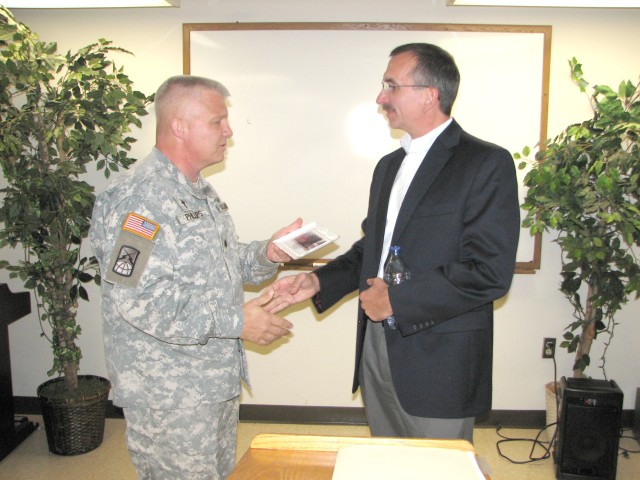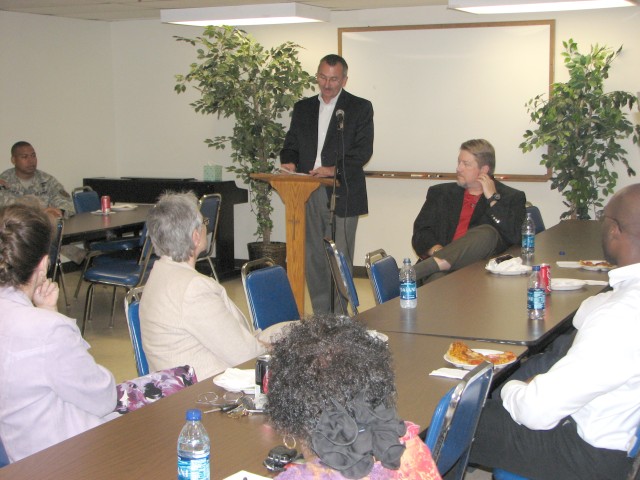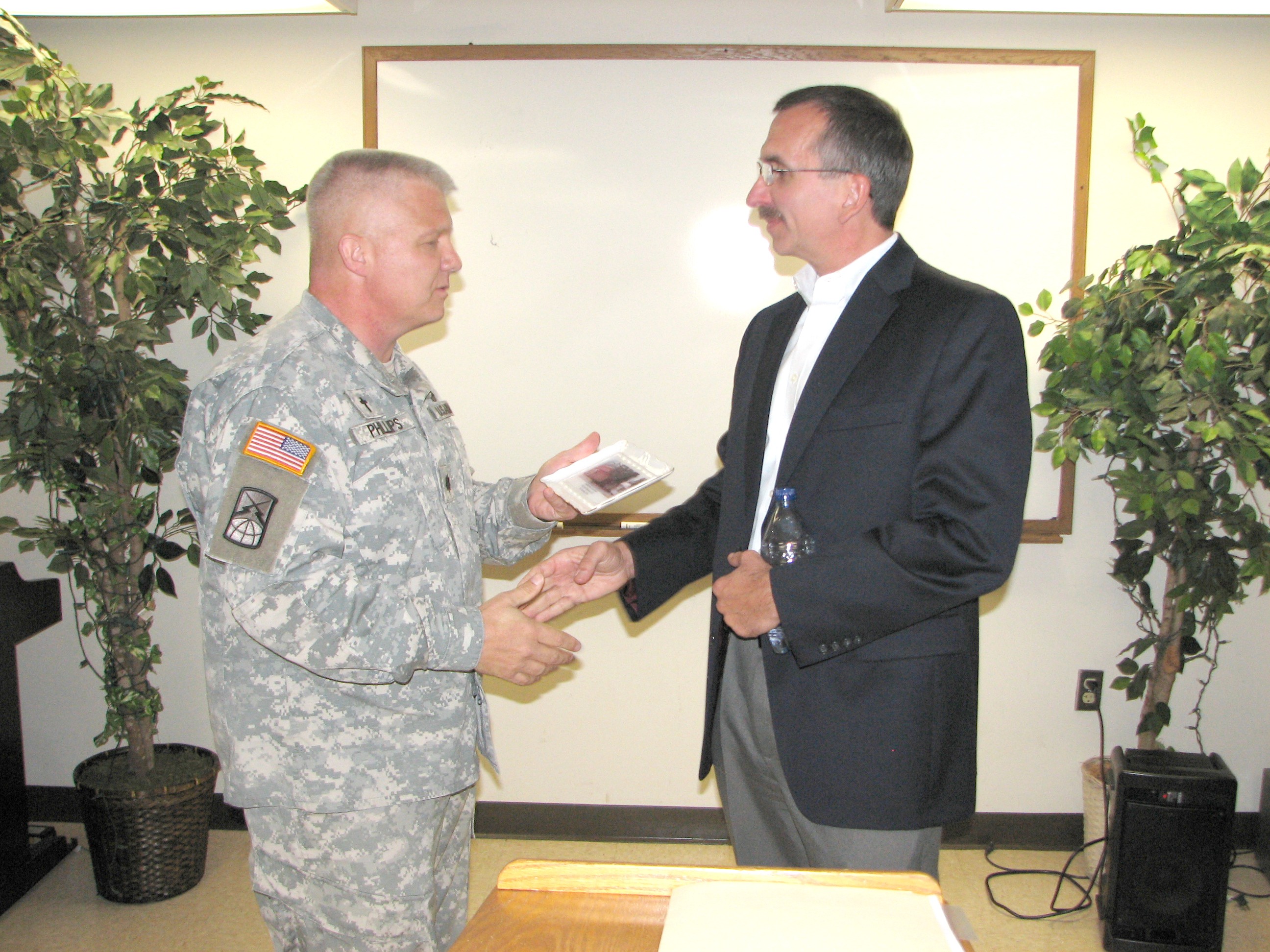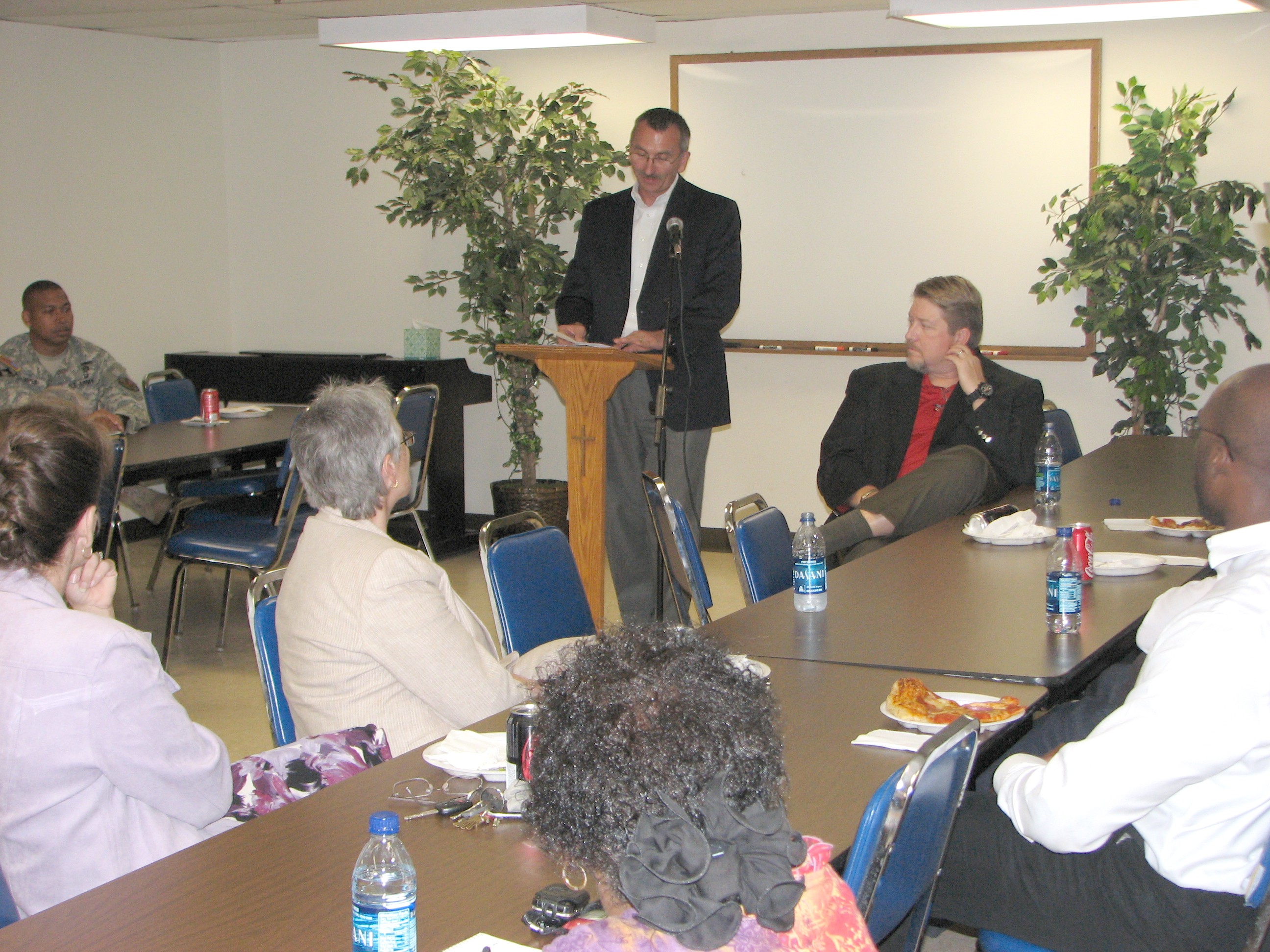"You can be a leader no matter what your position."
This was one of the many points Scott Randazza, director of finance for the Coca-Cola Company, shared with members of the Fort McPherson community Oct. 19 during the third leadership luncheon event hosted by the U.S. Army Garrison Chaplain Office staff.
The luncheon program, held in the basement of the Fort McPherson Chapel Center, brings leaders from around the community to share their knowledge with military personnel.
Despite being a leader within Coca-Cola, Randazza said he didn't always have things going so smoothly in his life.
An accountant by trade, he said he was always a planner, imagining what he wanted in life and how he would get there.
"I had a 10-year plan - be a partner (in a business), get married (and) have four kids, a dog and cat, and white picket fence house," he said.
But life would throw Randazza a curve. Two years into his first marriage, his wife, Maria, died from breast cancer.
"It helped put perspective on what is important," Randazza said.
Despite his challenges, Randazza said life has been very good to him.
He remarried and has been with his wife, Tammy, for 17 years, and has two children, Caitlin, 14, and Danny, 11.
"I wouldn't wish my experiences on my worst enemy but I wouldn't trade the lessons I learned," he said.
Randazza said one important thing he learned was although a person can create a plan, he or she can't control what will happen to that plan.
However, he said, a person can control how he or she reacts. Such control is possible through faith, Randazza said.
"Trusting in God is the most important thing. Learn to say yes to his plan and not to your own," he said. "I don't always like what life throws at me, but I've learned to trust in God."
Such trust helps a person navigate through challenges in life with a sense of calm, Randazza said, adding inner strength is an important factor in being a good leader.
By being the calm in the storm, Randazza said a leader can help his or her team set a direction and lead their team to that destination by setting a good example.
Once at that destination, leaders must be humble and give credit where it is due: to the team, said Randazza.
A good relationship can create a positive impact in a team member's life, added Randazza, using an example from his own life.
While dealing with Maria's cancer, Randazza described how when he was working as an accountant at Coca-Cola, one of his leaders - Jack Stahl, the chief financial officer - visited him regularly and showed concern and care.
While Stahl was in a leadership position, Randazza said anyone can have a positive impact on the lives of others, adding that in this sense, anyone can be a leader.
"A boss is not equal to a leader. A boss is just someone with a position of authority," Randazza said. "Just because you are in a leadership position doesn't mean you are a leader. A leader is someone who leads."
Randazza told attendees that each of them had gifts they could use to be good leaders, encouraging them to use those gifts in a manner that fits their personality, and explained how people shouldn't try to change their personality or gifts to try and emulate another person.
One thing Randazza said people are free to change, however, is their plans. "If things change, make a better plan," Randazza said.
A change in plans is what most people at Fort McPherson are experiencing due to BRAC.
In addition to Randazza's words, fellow Coca-Cola employee John Phillips, a finance manager, shared words to help people cope with these changes.
"Don't discount what you know," said Phillips, a retired Army lieutenant colonel.
Although an artillery officer, Phillips said by taking time to look over the knowledge he acquired over twenty years of service, he was able to see how it could help him prepare for change.
"You'll be amazed at what you know," he said.
Besides this tip, Randazza offered those worried about an uncertain future a life lesson he learned firsthand.
"Bad experiences can force you to grow," he said, adding he was fortunate to have many good leaders help him as he grew.
Being a good leader in and out of work was a challenge, Randazza left with those in attendance. Randazza also encouraged everyone feeling anxiety to remember what he said is the the most important thing; that no matter what happens, people can trust in their faith to help them through.
"At the end of day, no matter how much anxiety I have, I remember what is important," he said.




Social Sharing